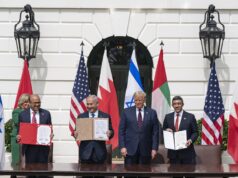Amina bin Salem Nasser of Saudi Arabia was beheaded Monday on charges of magic and sorcery. The death sentence was delivered in the Qurayyat district in the al-Jawf region with no specific details of the conviction made public. An anonymous source close to the Saudi religious police claims that Saudi officials found a book on witchcraft, 35 veils, and glass bottles full of “an unknown liquid used for sorcery” during a search of her house. According to the London-based al-Hayat, however, Nasser tricked people into believing she could cure their illnesses, charging nearly $800 a session.
Philip Luther of Amnesty International explains, “While we don’t know the details of the acts which the authorities accused Amina of committing, the charge of sorcery has often been used in Saudi Arabia to punish people, generally after unfair trials, for exercising their right to freedom of speech or religion.”
 Indeed, others in the Kingdom shared Nasser’s fate. In September, a Sudanese national was beheaded in Medina on ‘sorcery’ charges, and in 2007 an Egyptian national was beheaded for purportedly casting spells in an attempt to separate a married couple. In fact, the Saudis take witchcraft so seriously that they established an official body charged with combating sorcery called the Anti-Witchcraft Unit. The unit is tasked with detaining sorcerers and reversing the harmful effects of their spells.
Indeed, others in the Kingdom shared Nasser’s fate. In September, a Sudanese national was beheaded in Medina on ‘sorcery’ charges, and in 2007 an Egyptian national was beheaded for purportedly casting spells in an attempt to separate a married couple. In fact, the Saudis take witchcraft so seriously that they established an official body charged with combating sorcery called the Anti-Witchcraft Unit. The unit is tasked with detaining sorcerers and reversing the harmful effects of their spells.
Last week this blog noted that a report produced for the Shura Council, Saudi Arabia’s legislative assembly, concluded that allowing women to drive would “provoke a surge in prostitution, pornography, homosexuality, and divorce.” While humorous, both stories point to a real problem of a deep-seated intolerance in the country.




